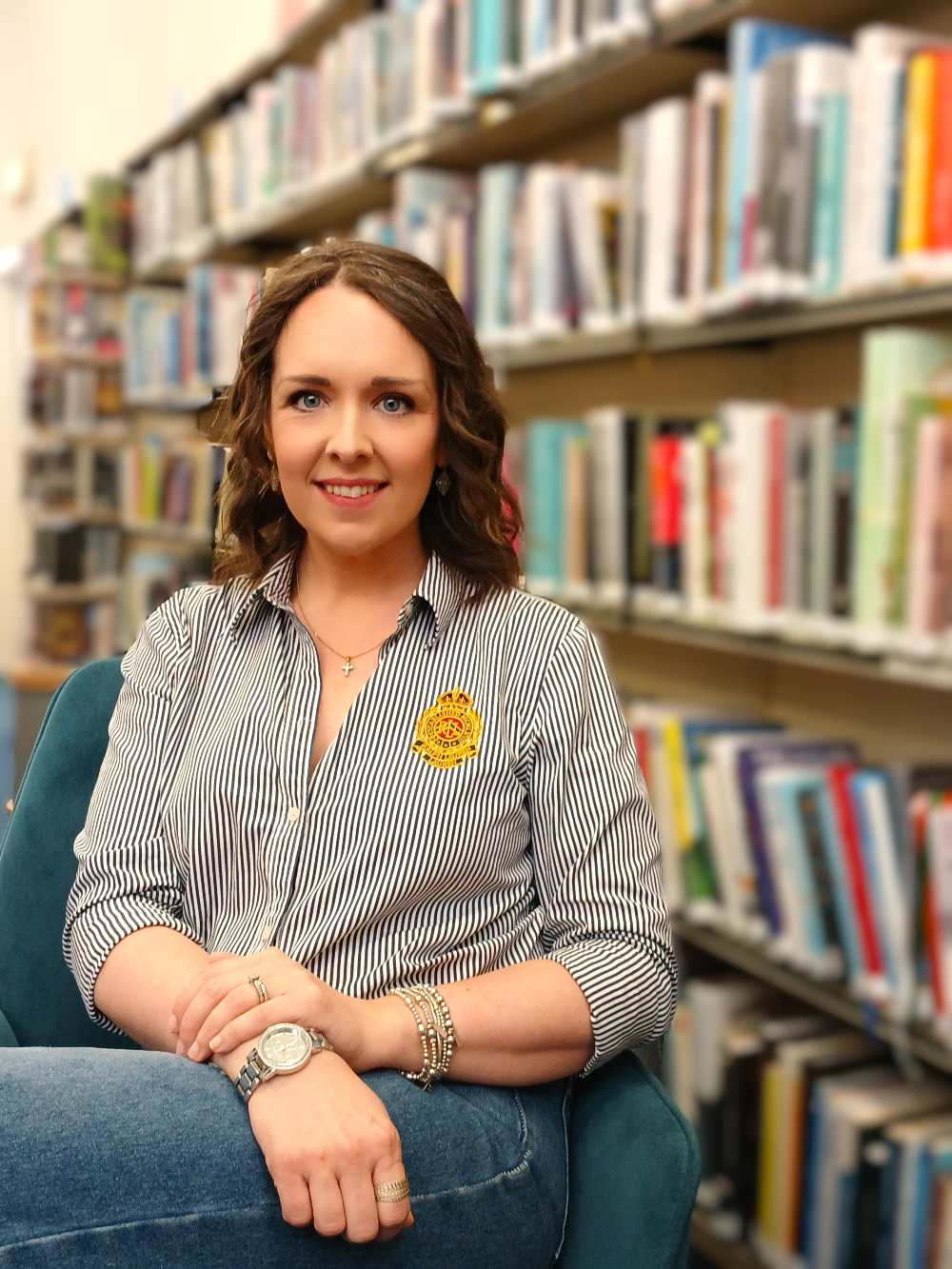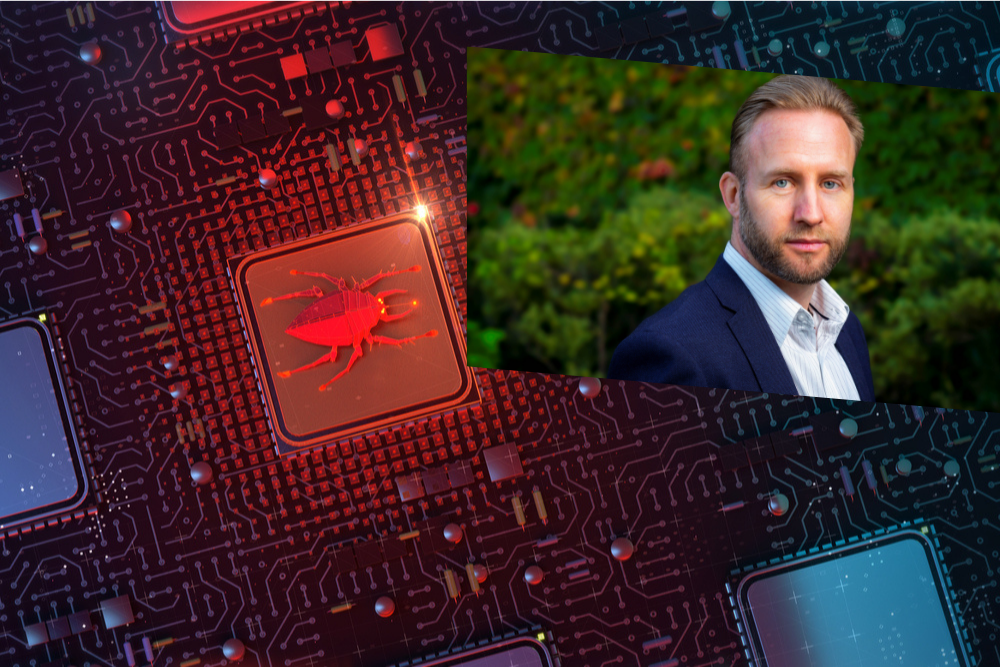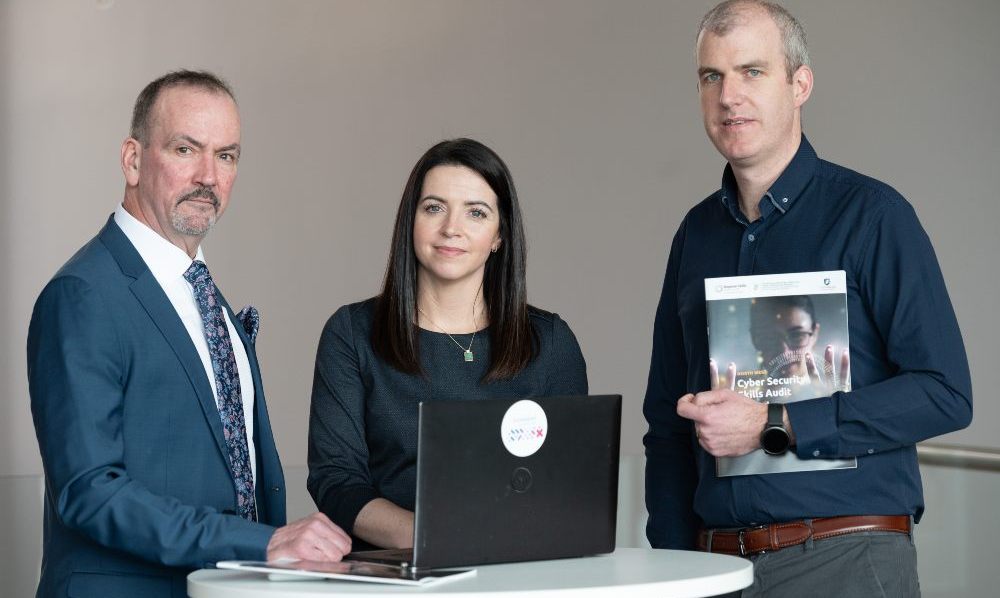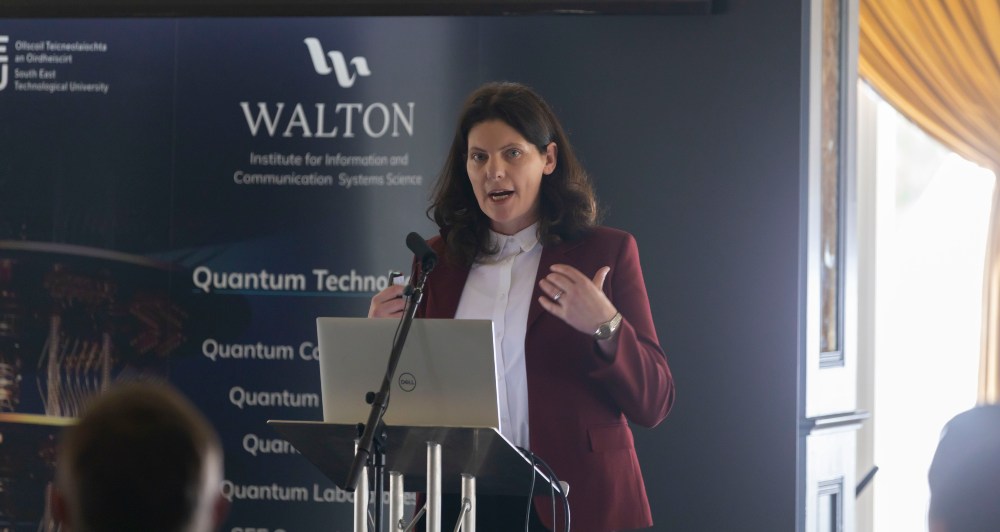Meath-based entrepreneur Emer Mugisha has created a mobile-first, gamified learning platform that will give more people the power to stave off cyberattacks.
In a world where over 80% of cyberattacks result from social engineering and user error, the cybersecurity skills gap has never been more critical.
Yet traditional cybersecurity education remains overly technical, jargon-heavy, and frankly, boring. Enter Cyberminds, a mobile-first gamified learning platform that’s transforming how we approach cybersecurity education.
“Traditional cybersecurity education is overly technical, jargon-heavy and let’s be honest – boring”
Founded by Emer Mugisha, a Navan native who spent a number of years in Uganda where she met and married her husband and started their family before returning to Meath, Cyberminds addresses both the massive cybersecurity workforce shortage, estimated at over 3.5m roles globally, and the industry’s persistent inclusivity challenges.
The problem: When education fails to engage
“Traditional cybersecurity education is overly technical, jargon-heavy and let’s be honest – boring,” Mugisha explains. “It’s built for people who are already halfway in the door, not for beginners, career-switchers or those who just want to understand how to stay safe online.”
The statistics paint a stark picture. Many people don’t know where to start with cybersecurity, and when they do, they encounter intimidating content, outdated teaching methods, and a lack of real-world relevance. This results in low engagement, poor completion rates, and a skills gap that continues to grow.
The industry also faces a major inclusivity issue. Cybersecurity remains a male-dominated space, but as Mugisha believes “with the right design, tone and accessibility, we can bring far more diverse voices into the conversation. That includes women, underrepresented groups and people from less-technical backgrounds.”
The solution: Gamification meets accessibility
Cyberminds offers a mobile-first, gamified digital learning platform that delivers bite-sized cybersecurity lessons designed to be fun, accessible, and practical. By using gamification, the platform makes complex cybersecurity concepts approachable and memorable for users with little to no technical background.
The platform’s flexibility allows anyone to learn on their own schedule, anywhere. “We break down barriers with bright, friendly design and a curriculum that focuses on real-world skills, not jargon,” the founder explains.
To reinforce learning and boost motivation, Cyberminds has introduced Master Challenges that test users on key topics through scenario-based tasks. Completing these challenges unlocks badges and certificates, which not only help cement knowledge but also give users tangible recognition for their efforts. This approach helps learners build confidence, track their progress, and showcase their achievements.
An unexpected entrepreneurial journey
Emer Mugisha, founder, Cyberminds
The story behind Cyberminds begins with an unlikely entrepreneur. “I never set out to become an entrepreneur,” admits Mugisha. “I started out in a career in social care and then branched into the corporate world a few years later.”
In 2015, when her husband Joshua, who has a long-standing career in tech and cybersecurity, approached her with a business idea, her response was direct: “Nope, not for me.” At the time, she was heading operations for an internet service provider in Uganda, East Africa, content in the corporate world with the safety net of someone else owning the business.
But life had other plans. A real estate flip opportunity became the gateway to a decade of investments and ventures. “Ten years later, we’ve dabbled in quite a few investments and ventures together and I’ve completely embraced the entrepreneurial journey,” she reflects.
Living primarily in Uganda, she worked across various sectors from HGV logistics to coffee production, and even served as consulting for the Embassy of Ireland establishing the Business Ireland Uganda (BIU) Network. She also had the honour of serving as President of the Irish Society in Uganda.
“Cyberminds came out of all these experiences converging my corporate and social care background, Joshua’s technical expertise and our shared belief that education should be inclusive, accessible, and genuinely useful,” she explains. “What started as an ‘okay, we’ll do one project together’ has become a serious passion for building solutions that empower people and Cyberminds is the most exciting chapter yet.”
Navigating two start-up ecosystems
Having experienced entrepreneurship in both Uganda and Ireland, Mugisha offers unique insights into different startup ecosystems. “Ireland’s start-up scene is definitely growing, and there’s a noticeable increase in the number of accelerator programmes and grant options available, which is brilliant to see,” she observes.
However, she notes a potential pitfall: “I know from fellow founders that it can feel like applying and participating in these supports becomes a full-time job in itself! There’s a risk that it can pull focus away from actually developing the product.”
Her first entrepreneurial experience in Uganda provided a stark contrast. “Uganda is incredibly entrepreneurial at its core. People hustle, innovate and build with what they have. But the downside is that there’s very little structured support for start-ups; no safety net, limited access to funding and very few formal pathways to scale.”
Returning to Ireland two years ago revealed the differences clearly. “It’s slightly less entrepreneurial in mindset, but the support structures are far stronger. The difference has been eye-opening. I’ve learned to appreciate the balance between grassroots resilience and institutional support and I think there’s a lot both ecosystems can learn from each other.”
Lessons from the start-up trenches
The journey hasn’t been without its challenges. “A huge challenge for me personally has been confronting fear. Fear of failure and then fear of launching something imperfect,” she admits. This led to what she calls “failure to launch” – getting stuck in endless masterclasses, networking events, and planning sessions that feel productive but don’t actually move the needle.
“That paralysis by preparation was a real trap for me and several other founders I’ve spoken to too,” she reflects. A quote from Reid Hoffman proved pivotal: “If you are not embarrassed by the first version of your product, you’ve launched too late.” This insight shifted their approach to launch, learn fast, and adapt.
Simplicity emerged as another crucial lesson. “It’s so easy to get lost in technical jargon or overcomplicate things, especially in cybersecurity, but if you lose your audience, you lose your impact. Keeping things clear and accessible has been vital for us as our mission has always been to ‘simplify complex cybersecurity concepts’.”
Perhaps most importantly, she’s learned that “resilience is key. The start-up world is so full of uncertainties and lots of setbacks. We’ve done a lot of pivoting this year when things didn’t go to plan, but I’m determined to keep going and accept that it’s part of the journey.”
Building for scale
Up until now, Cyberminds has been bootstrapped and self-funded through to the launch of their MVP. “This was a deliberate choice. We wanted to prove the concept, build lean and stay closely connected to our users from day one,” the founder explains.
Now, having validated demand, they’re actively exploring funding opportunities to scale beyond the MVP stage. “The next step is to grow our team, expand our content and bring Cyberminds to a wider audience both in Ireland and internationally.”
Future development plans include new gamified features, AI integration, a web application, and an enterprise-level solution. The funding will be crucial for reaching these ambitious goals.
Advice for fellow founders
Drawing from her unique journey, the founder offers practical advice for fellow entrepreneurs: “Don’t wait for the perfect moment or product. Start, learn and iterate.”
She emphasises the importance of authenticity: “Your differences and unique background are strengths, lean into them rather than trying to fit a mould. Be what you can be and say what you can’t be. Build with purpose; solve real problems that you actually care about – don’t jump on every trend.”
Community building is equally important: “Build a supportive community around you, whether it’s mentors, fellow founders or early customers. Negative feedback is not personal so grow thick skin quick and listen to your customer.”
Her final piece of advice strikes a balance: “Be bold, be ambitious, be confident but don’t be arrogant.”
In terms of technology, Mugisha stays on track through platforms like Google Workspace for team collaboration. “I’ve found it absolutely brilliant. It’s helped us stay organised as a remote team. We’re still small and growing, so having simple, accessible tools that don’t create friction is really important for staying agile and focused.
“We also work closely with our external software development team CozmoTec, who have been incredible in helping us stay agile and responsive. They use tools like GitHub and Agile sprints to keep development streamlined and we maintain open, regular communication so we can pivot fast when user feedback or priorities shift. It’s been a real partnership not just task execution and that’s made a huge difference in the pace and quality of what we’re building.”
Growing entrepreneurial spirit
As a mother of twin boys, the founder is particularly excited about the growing entrepreneurial spirit in Ireland.
“When I was growing up, the focus was to do well in school, go to college, get a good job and then you’re set. But that pathway isn’t for everyone. It’s exciting to see young people now exploring other routes, dreaming bigger and building things from scratch.”
With Cyberminds positioned at the intersection of education technology and cybersecurity, the platform represents more than just a business opportunity. It’s a mission to democratise cybersecurity knowledge, making it accessible to everyone regardless of their technical background or experience level.
-
Bank of Ireland is welcoming new customers every day – funding investments, working capital and expansions across multiple sectors. To learn more, click here
-
For support in challenging times, click here
-
Listen to the ThinkBusiness Podcast for business insights and inspiration. All episodes are here. You can also listen to the Podcast on:
-
Spotify
-
SoundCloud
-
Apple






